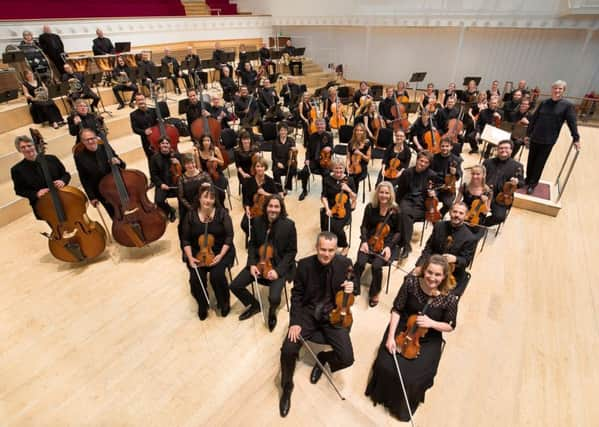Music review: Tectonics, various venues, Glasgow


If there was something that brought together the first day’s disparate events, however, it was a sense of contemplation. It was there in the slowly unfolding sonic landscapes of Bernard Parmegiani’s Outremer (****), in a poised, intensely focused performance from Nathalie Forget on the early electronic ondes Martenot. And it was there, too, in the ‘super-minimalist’ Solipse (**** for solo cello and tape by Lithuanian composer Rytis Mažulis, getting its world premiere – a gloriously ponderous, microtonal descent from the heights to the depths of the cello’s register, each note lasting longer than the previous, given a spellbinding performance by Anton Lukoszevieze.
And that sense of intimate listening ran through the first of two world premieres in the BBCSSO’s evening concert, under Tectonics mastermind Ilan Volkov. Fragile, ethereal and often teetering on the edge of silence, Naomi Pinnock’s The field is woven (****), while perhaps a little too Feldman-esque, turned rich harmonies over and over in evocative orchestrations, in a beautifully restrained, controlled performance. It was joined by an altogether more assertive work: James Clarke’s Untitled No. 9 (****) combined and recombined rugged layers of sound, its atmosphere gritty and uncompromising, and it showed off the BBC SSO’s brass to resonant effect.
Advertisement
Hide AdIf you were after contemplation, however, the performance that really stood out was that from Japanese sound artist Tetsuyo Umeda (*****), who had assembled a mad scientist’s den of tin cans, bottles, metal pipes, dry ice, water-filled goldfish bowls, spinning toys, portable hot plates and plenty more in the Old Fruitmarket, and proceeded to conjure a performance blending strange sonic landscapes with restless object manipulation. He wittily contrasted his grimy industrial tools with primal natural processes – the dripping of falling water; the bubble of water becoming steam; sudden flashes of light. With the audience in a reverential circle around Umeda’s nervy activities, it was a captivating, compelling performance, like an arcane, man-made ritual being enacted with all the devotion it deserved.
With earplugs given to anyone needing them, you could hardly accuse Saturday’s closing orchestral concert of being contemplative. Indeed, Tikkun Olam (*****) by Israeli-born saxophonist and political activist Dror Feiler pitted his own screaming saxophones – joined by Mats Gustafsson on more saxes and Lasse Marhaug on electronics – against a monumental, percussion-heavy BBCSSO. The result was a furious aural pummelling, but one that was full of invention, too – Feiler’s orchestral writing might have been brutally direct, like the Rite of Spring meets Mosolov’s Iron Foundry, but it teemed with telling detail, and proved a visceral highlight of the first day’s all-embracing offerings.